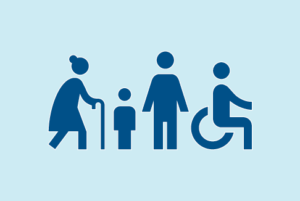Expanding education and training, increasing diversity, and boosting capacity are crucial steps for ensuring California’s health care workforce can meet patient needs into the future, especially in underserved communities, according to a newly released report from the California Future Health Workforce Commission. CHA supports the commission’s 30 recommendations and the path it outlines to develop a workforce prepared to meet critical future needs.
The commission’s new report, “Meeting the Demand for Health,” outlines the need for a comprehensive, statewide infrastructure designed to educate and produce a steady pipeline of professionals who can care for California’s growing and aging population.
“Health care is nothing without the women and men called to service in this profession,” said CHA President & CEO Carmela Coyle. “This new report affirms something we have known for years: that if we do not collectively invest in developing a new generation of diverse, well-trained, and well-educated health care professionals, we will fall short in our promise to care for all Californians.”
Even though hospitals devote substantial resources to attract, train and retain health professionals, the state faces a notable shortage of workers to provide primary care, prevention, behavioral health, and geriatric care. The commission recommends spending up to $3 billion over the next 10 years to increase California’s health care workforce by 47,000 professionals by the year 2030.
The recommendations would nearly eliminate the psychiatry shortage by that date and address geographic disparities that jeopardize access to care for millions of Californians.
The California Future Health Workforce Commission was co-chaired by Janet Napolitano, President of the University of California, and Lloyd Dean, CEO of CommonSpirit Health. CHA’s Cathy Martin, vice president of workforce policy, and Sheree Lowe, vice president of behavioral health, were also closely involved in preparation of the report.





